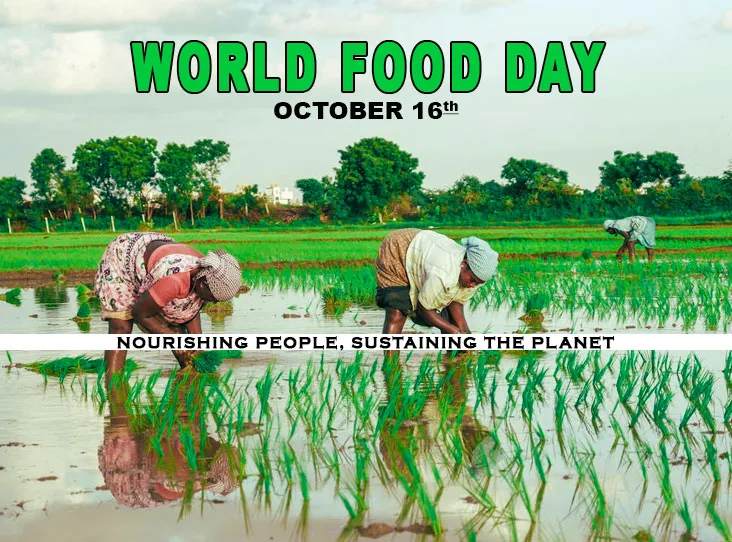Every year on October 16, people around the world come together to observe World Food Day. This significant event serves as a reminder of the importance of addressing global hunger and promoting food security. Established by the Food and Agriculture Organization (FAO) of the United Nations in 1981, World Food Day aims to raise awareness about hunger, encourage actions to alleviate it, and promote sustainable food practices.
Table of Contents
The Challenge of Global Hunger
As we enter the 21st century, the world faces the paradox of having both an abundance of food and millions of people suffering from hunger. According to the FAO, more than 820 million people worldwide were undernourished in 2019. This staggering figure underscores the urgency of finding comprehensive solutions to address the complex issue of global hunger.
World Food Day highlights the need for concerted efforts at local, national, and international levels to eradicate hunger and ensure everyone has access to sufficient, safe, and nutritious food. The day serves as a platform to discuss the root causes of hunger, such as poverty, conflict, and climate change, and explore innovative strategies for sustainable food production and distribution.
Sustainable Agriculture: A Path to Food Security
One key theme of World Food Day is sustainable agriculture. Agriculture is not only a source of food but also a significant contributor to environmental sustainability. Practices such as deforestation, excessive use of chemical fertilizers, and monoculture can lead to soil degradation, water pollution, and loss of biodiversity.
Embracing sustainable agriculture involves adopting practices that balance the needs of the present without compromising the ability of future generations to meet their own needs. This includes promoting agroecological approaches, reducing food waste, and supporting smallholder farmers. Sustainable agriculture not only ensures food security but also helps protect the environment and build resilient communities.
The Impact of Climate Change on Food Security
Climate change poses a severe threat to global food security. Extreme weather events, changing precipitation patterns, and rising temperatures can disrupt agricultural systems, leading to crop failures, food shortages, and increased vulnerability for communities that rely on agriculture for their livelihoods.
World Food Day provides an opportunity to discuss the intersection of climate change and food security and advocate for strategies that mitigate the impact of climate change on agriculture. This may involve developing drought-resistant crops, implementing water-efficient farming practices, and supporting farmers in adapting to a changing climate.
The Role of Technology in Ensuring Food Security
In the modern era, technology plays a crucial role in addressing the challenges of food security. From precision agriculture and genetically modified crops to data analytics and blockchain for supply chain transparency, technological innovations offer promising solutions to enhance food production, reduce waste, and improve the efficiency of food distribution systems.
World Food Day serves as a platform to discuss how technology can be harnessed to benefit agriculture and food security. It encourages collaboration between governments, private sector entities, and civil society to leverage technology for sustainable and inclusive development.
Individual Actions for Global Impact
While governments and organizations play a vital role in addressing global hunger, individuals also have the power to make a difference. On World Food Day, people are encouraged to reflect on their own consumption patterns, reduce food waste, support local farmers, and engage in advocacy efforts to promote policies that prioritize food security.
Participating in community initiatives, supporting organizations working towards food security, and educating oneself about the interconnected issues of hunger, poverty, and sustainability are all ways individuals can contribute to the global effort to end hunger.
Conclusion: A Call to Action
World Food Day serves as a powerful reminder that the fight against global hunger is a shared responsibility. It calls for collective action, collaboration, and innovative solutions to ensure that everyone, everywhere, has access to the nutritious food they need for a healthy and fulfilling life. As we celebrate World Food Day, let us renew our commitment to building a more equitable and sustainable food system that nourishes people and sustains the planet for generations to come.
Author
Stay connected for new publications, events, and more.







More Stories
World Health Day: A Global Commitment to Health and Well-being
International Day of Conscience: Cultivating Global Harmony Through Ethical Awareness
La Journée mondiale de la vaccination : Un Engagement pour la Santé Mondiale